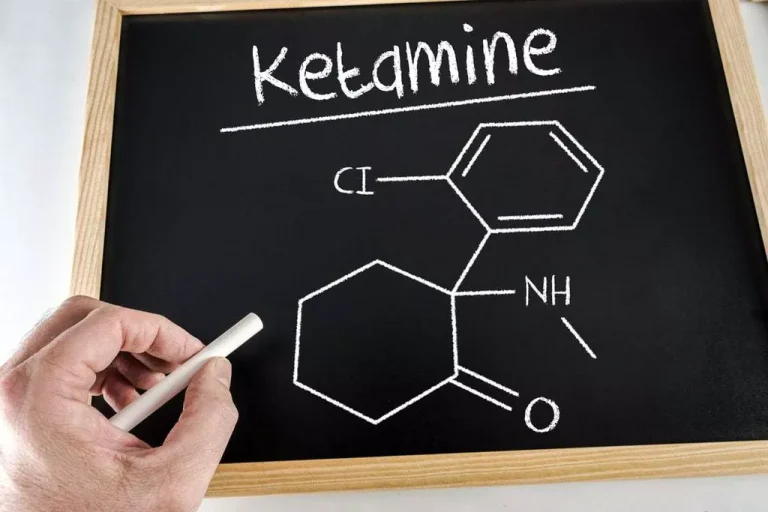Vitamins and Supplements for Opioid Use Disorder

With my addiction and withdrawal, and explore the research behind them. While this is known as a vitamin that gives you energy, it does so much more. Taking vitamin B12 supplements will help heal the damage meth has done to your nervous system and liver.
- With a slow cooker, you put the ingredients in, turn it on and let it cook, and a few hours later, you have a hot meal waiting for you.
- Recovery takes time, but with great care, diligence, and dedication, anyone can overcome drug and alcohol addiction.
- Most people in the study also thought vitamin C was helping them after they were done detoxing.
- Overconsumption of sugar can also be a health risk for obesity, diabetes, high blood pressure and other serious issues.
- This stage is very difficult for those suffering from substance abuse, and sometimes the withdrawal symptoms can be so great that individuals don’t recover successfully.
- You also need to rebuild your body’s systems that have been damaged by alcohol abuse.
Choose the Right Magnesium for Addiction Recovery
Researchers have concluded that chronic vitamin D deficiency is an environmental factor contributing to drug use. And supplementation should be considered for the effective treatment of drug abuse and addiction (51-54). They can support your mitochondria and increase your brain’s growth hormone, and have been shown to improve mood, sleep, learning and memory. They also protect against psychiatric disorders including depression, mild cognitive impairment, dementia and Alzheimer’s disease (19-21). But once I started supplementing with citicoline, I noticed an improvement in my cognitive function because it increased my levels of acetylcholine and dopamine.

Vitamins for Withdrawal From Alcohol Addiction
Self-care is far from being selfish; it’s a powerful strategy for substance abusers to nourish their bodies and their spirits. If you have an opioid use disorder, this could affect your nutrition. OUD has been linked to deficiencies for certain vitamins, minerals, and amino acids. One study showed that most people https://ecosoberhouse.com/ starting treatment for a drug use disorder had signs of a nutrient deficiency. The most common ones were vitamins A, E, C, and amino acids, which are the building blocks of proteins. Drug addicts are often found to suffer from deficiencies of Vitamin B1, B5, B6, C, and E as well as calcium, magnesium and niacin.
- Mental health is essential to the success of any treatment program.
- Over time, opioid use damages the intestinal lining, which impairs the ability to absorb nutrients.
- While detox withdrawal symptoms vary based on the substance, one of the more common symptoms is a lack of appetite, usually accompanied by nausea and vomiting.
- At first, it may think hunger pangs are a desire to drink alcohol.
- Recovering drug users see improvement in their moods when they eat balanced diets, which often leads to the greater mental willpower necessary to conquer addiction.
Which Vitamins and Supplements Might Help With Opioid Use Disorder?

He is board-certified in psychiatry and neurology and has a B.A. His specialty is in natural healing techniques that promote the body’s innate ability to heal itself. With the addition of these supplements, as well as proper nutrition, recovery can be a more comfortable, and successful, process.
Symptoms of vitamin A deficiency include night blindness, increased rates of infection, and skin irritations. Deficiencies in vitamin C may cause fatigue and connective tissue defects, including slower wound healing and gingivitis. Long-term abuse of alcohol can also cause a B12 deficiency, which can lead to many significant conditions.


The body can produce up to 12 amino acids on its own, but the remaining eight can only come from external sources. Studies have shown that amino acid supplements can be helpful for an individual with substance addictions. However, again, only take supplements with a doctor’s guidance. A buildup of amino acids can cause vitamins for recovering alcoholics negative effects such as brain damage. You can generally avoid this risk by forgoing supplements and focusing on supplying amino acids through varied protein-rich foods such as meat, eggs, beans, tofu, and quinoa. When your body has been damaged by drug or alcohol abuse, a healthy diet alone isn’t always enough.
Find a Nutrition and Addiction Rehab Center
Because of all the vitamin and mineral deficiencies caused by long-term opioid use, the ability to absorb these vital nutrients is also in deficit. Therefore, increased levels of protein, B12, and magnesium would be a basic starting point for individuals recovering from opioid addiction. The body needs the opportunity to return to proper nutritional levels during the withdrawal process.
Instead of ingesting each B vitamin individually, recovering drug addicts can combine them and consume them as a multivitamin. Poor nutrition leads to poor physical and mental health, which in turn can drive individuals back to substance abuse as a means of coping. It’s a vicious cycle, but one that can be broken with the right approach to nutrition.
- Adding fruits and vegetables to your diet provides more vitamins and minerals for your body to absorb.
- Stimulants, such as amphetamines and cocaine, cause increased energy, euphoria, and decreased appetite in users.
Making a meal plan that includes sufficient portion sizes will also help make sure you get enough nutritious food. You may be surprised how learning just a few basic meals can benefit your overall nutrition levels. EatingWell has a great collection of Cooking 101 tutorials, but there are many other resources available online.




 120 N Congress St.
120 N Congress St.